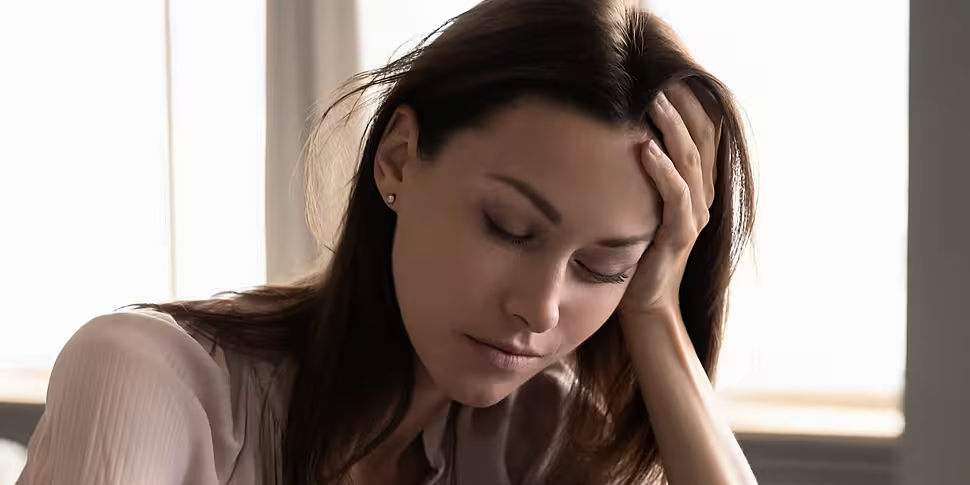A woman living with narcolepsy believes there are 'a whole lot of people out there' that have the condition and have no idea.
When Sharron McSherry was just 14 she started to suffer with debilitating migraines and kept falling asleep in school.
Years went by and doctors couldn't understand what the problem was.
When she was 27, her parents saw a TV documentary that would change her life.
Sharron McSherry told Lunchtime Live she just kept falling asleep and missing things.
"The symptoms that originally happened was that I had excessive daytime sleepiness," she said.
"I'd no control over it at all - you'd be sitting watching TV and the next thing you'd wake up and be like, 'Oh flip I've missed the movie'.
"I just kept missing things".
Night time hallucinations
Ms McSherry said she also never slept through the night.
"I'd wake up during the night with hallucinations and I'd have really disrupted sleep.
"I'd imagine people in the room with me, people sitting on my bed - I could actually feel the bed weighing down on one side [as if] someone was actually sitting beside me.
"I would have sleep paralysis where you're not really asleep but you're not awake either.
"It's like you want to scream out - I have a fear of rodents, so that would be the thing that would affect me in my sleep paralysis.
"I'd imagine they were running through my hair and you couldn't do anything about it. You couldn't scream out, you couldn't ask for help and you couldn't come out of it".
'A droop of the head'
Ms McSherry said she would also lose control of her upper body when she started to laugh or get excited.
"It started off when I was very young, it would usually just be like a droop of the head," she said.
"I'd be like a nodding dog where the head keeps bobbing and the tongue would stick to the roof of the mouth."
Ms McSherry said as she got older a condition known as cataplexy - which brings on brief bouts of muscle weakness or paralysis - got worse.
"I would have a buckling at the knees, full-body collapse - people would ring ambulances," she said.
"People would think [I've] just collapsed or fainted and I was totally coherent.
"I'd be so aware of all of these people panicking but I couldn't reach out to them, I couldn't tell them 'No, I'm OK'.
"What I learned to do then was that you had to just breathe through it.
"The more that I fought to come out of the cataplexy the longer it took to come around".
'Acute narcolepsy'
Ms McSherry said her doctor believed it may have been Multiple Sclerosis - having already been to a neurologist and others who put her condition down to depression, hormones or stress.
It wasn't until her parents saw a documentary on dogs that they thought they may know what was wrong.
"There was a doctor on and... he was saying how the excitement in the dogs - a couple of them were losing the power in their back legs when they got excited," she explained.
"They said this was cataplexy and cataplexy was related to narcolepsy and excessive daytime sleepiness.
"My mum and dad were watching this and saying, 'That's similar to what Sharron has'".
Ms McSherry said her parents sent her the tape and she noted the name of the professor involved in the UK.
"I went in and had a two-night stay and they put all the little electrodes on my head, all over my body," she said.
"I had what they call a multiple sleep latency test and he diagnosed me with acute narcolepsy type 1 - which is narcolepsy with the cataplexy".
She said the doctor told her the reason she was so tired during the day is because she "runs marathons" in her sleep.
"There's a whole lot of people out there that have it and have no idea that that's what they have," she said.
"They're being passed off as being depressed and everything else".
'It can be managed'
Ms McSherry said there is no known cure.
"There's no cure for it [but] it can be managed," she said.
"I take a night time medication to make me sleep - which mimics a natural sleep rhythm - and I take medication stimulants during the day.
"I take two naps a day also.
"People look at me and they go, 'She looks grand, there's nothing wrong with her'.
"But they have no idea what I am living with".
It is estimated that one in 2,000 people worldwide have narcolepsy with cataplexy.
More information can be found here
Listen back here:









